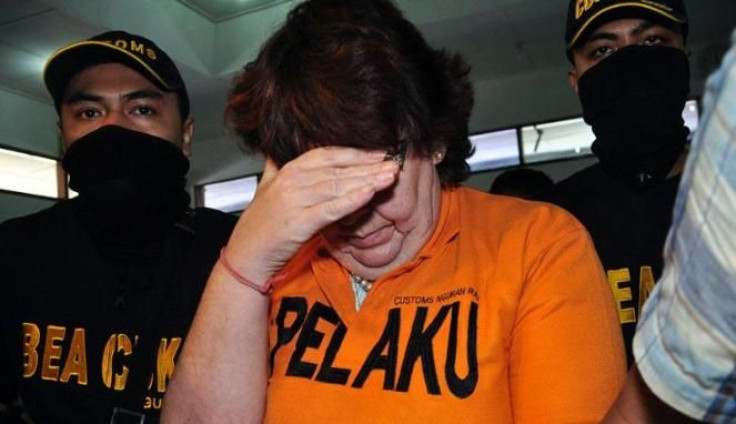Butterfly On A Wheel: British Woman Sentenced To Death In Indonesia For Drug Smuggling

A British woman received the death penalty after being convicted of drug trafficking by an Indonesian court.
Lindsay Sandiford, 56, was arrested in the province of Bali last May after airport customs officials discovered slightly more than 10 pounds of cocaine in her luggage.
While the prosecution had requested a 15-year sentence, the court ordered Sandiford to be executed by firing squad. Her legal team has 14 days to file an appeal.
Sandiford claims she was forced to become a mule for a drug ring after threats were made on her children’s lives.
"I would never have become involved in something like this, but the lives of my children were in danger, and I felt I had to protect them," Sandiford told the court, the BBC reported.
The British human rights organization Reprieve has spoken out against the ruling, backing up Sandiford’s claims of coercion and denying the court's conclusion that she was at the center of the drug ring operating in the UK, Thailand and Indonesia.
“Lindsay has always maintained that she only agreed to carry the package to Bali after receiving threats against the lives of her family,” Harriet McCulloch, an investigator at Reprieve, said in a statement. "She is clearly not a drug kingpin -- she has no money to pay for a lawyer, for the travel costs of defense witnesses or even for essentials like food and water.”
“She has cooperated fully with the Indonesian authorities but has been sentenced to death while the gang operating in the UK, Thailand and Indonesia remain free to target other vulnerable people,” she added.
Dr. Jennifer Fleetwood, a lecturer in criminology at the University of Kent, submitted an expert report to the District Court in Denpasar, Bali, commenting on Sandiford’s mental health and her vulnerability as a target for drug traffickers.
“There is ... evidence to suggest that a trafficker would seek someone who was vulnerable,” Fleetwood’s report read. “Having reviewed extracts from Lindsay’s medical records, I know that Lindsay has a history of mental health issues. ... This may have unfortunately made her an attractive target for threats, manipulation and coercion.”
The UK Foreign Office has also spoken out against the ruling, saying that it would lobby the Indonesian government to overturn it.
"We strongly object to the death penalty and continue to provide consular assistance to Lindsay and her family during this difficult time," the Foreign Office said in a statement, the BBC reported.
Indonesia maintains some the world’s strictest anti-drug laws, though no executions have been carried out since 2008.
Sandiford is among 12 British nationals and 41 foreigners facing the death penalty in Indonesia. Last October, another British citizen, Gareth Cashmore, was sentenced to death on drug offenses.
More than 100 people total are currently on death row there, according to human rights group Amnesty International, which has called upon the Indonesian government to end the policy.
“The death penalty is the ultimate inhuman punishment, and Amnesty never condones its use, but handing out a penalty of death by firing squad for a nonlethal crime is cruel in the extreme,” the group said in a statement.
“It is extremely sad to hear that judges have decided to give Lindsay Sandiford a death sentence -- despite the fact that the prosecution weren’t even asking for it,” it added. “She is the second British citizen sentenced to death for drug offenses in the last six months -- an extremely worrying trend.”
Stop The Drug War reported in 2011 that of the 111 people sitting on Indonesia's death row, 56 were there for drugs.
© Copyright IBTimes 2024. All rights reserved.











